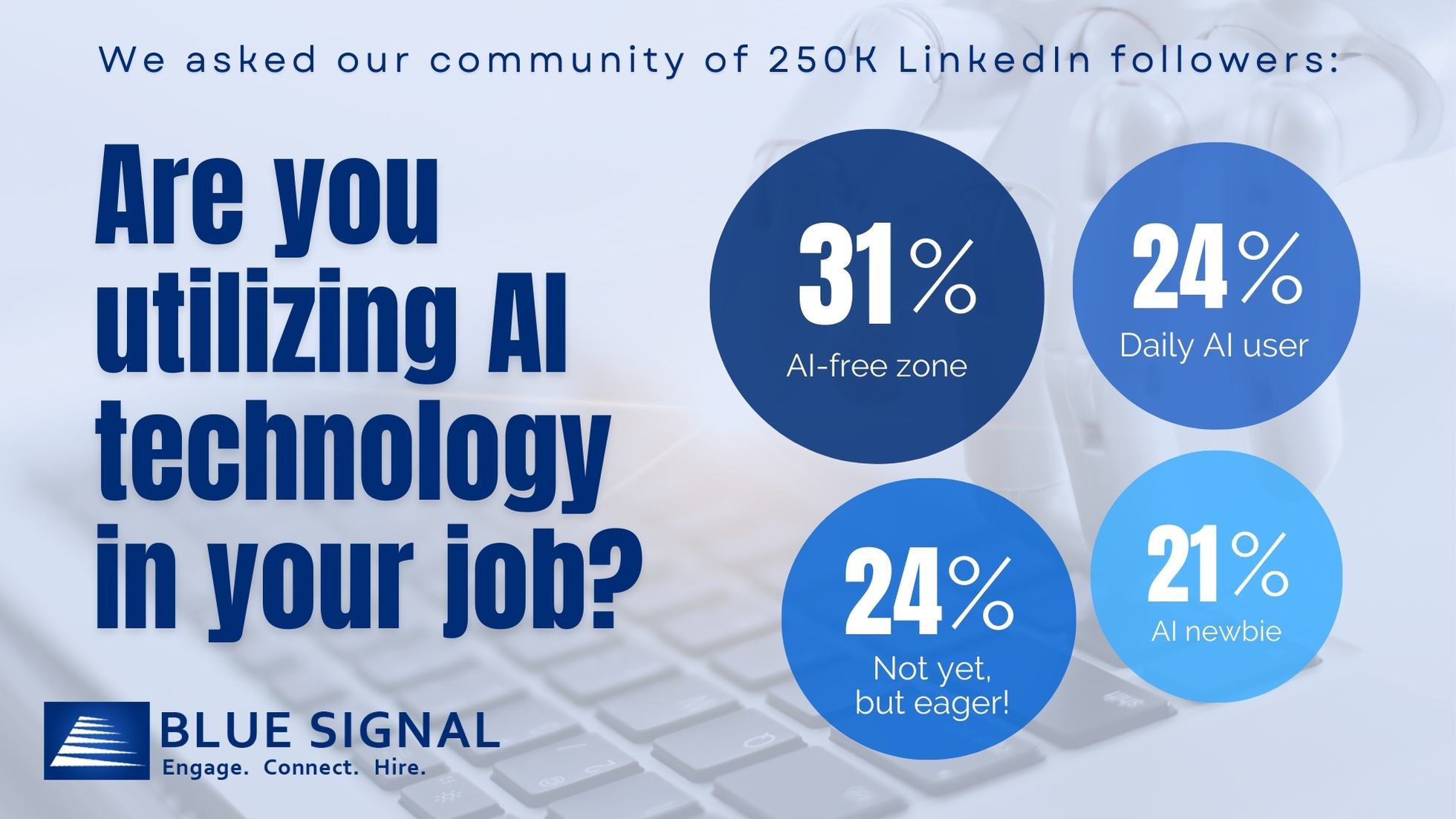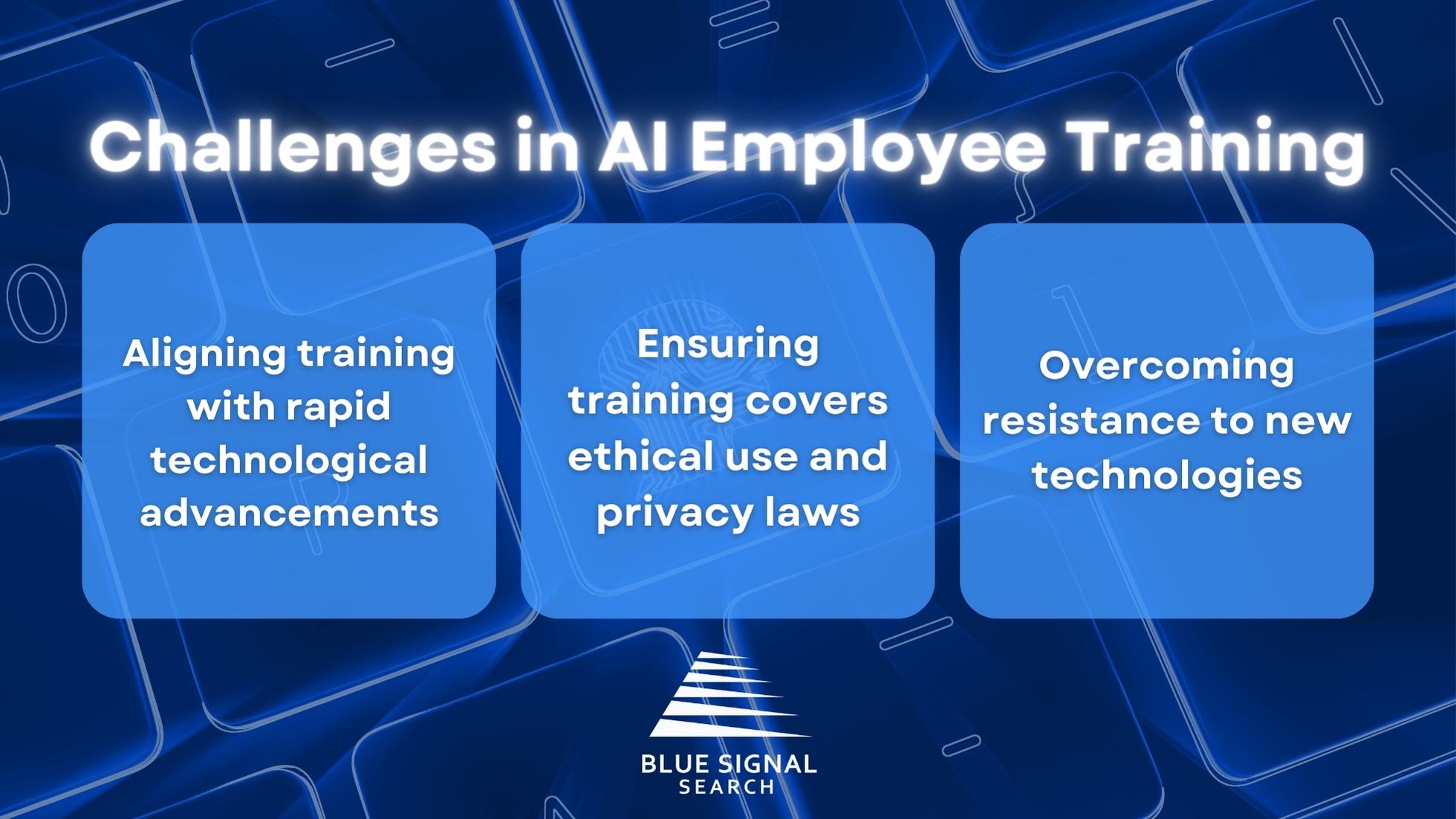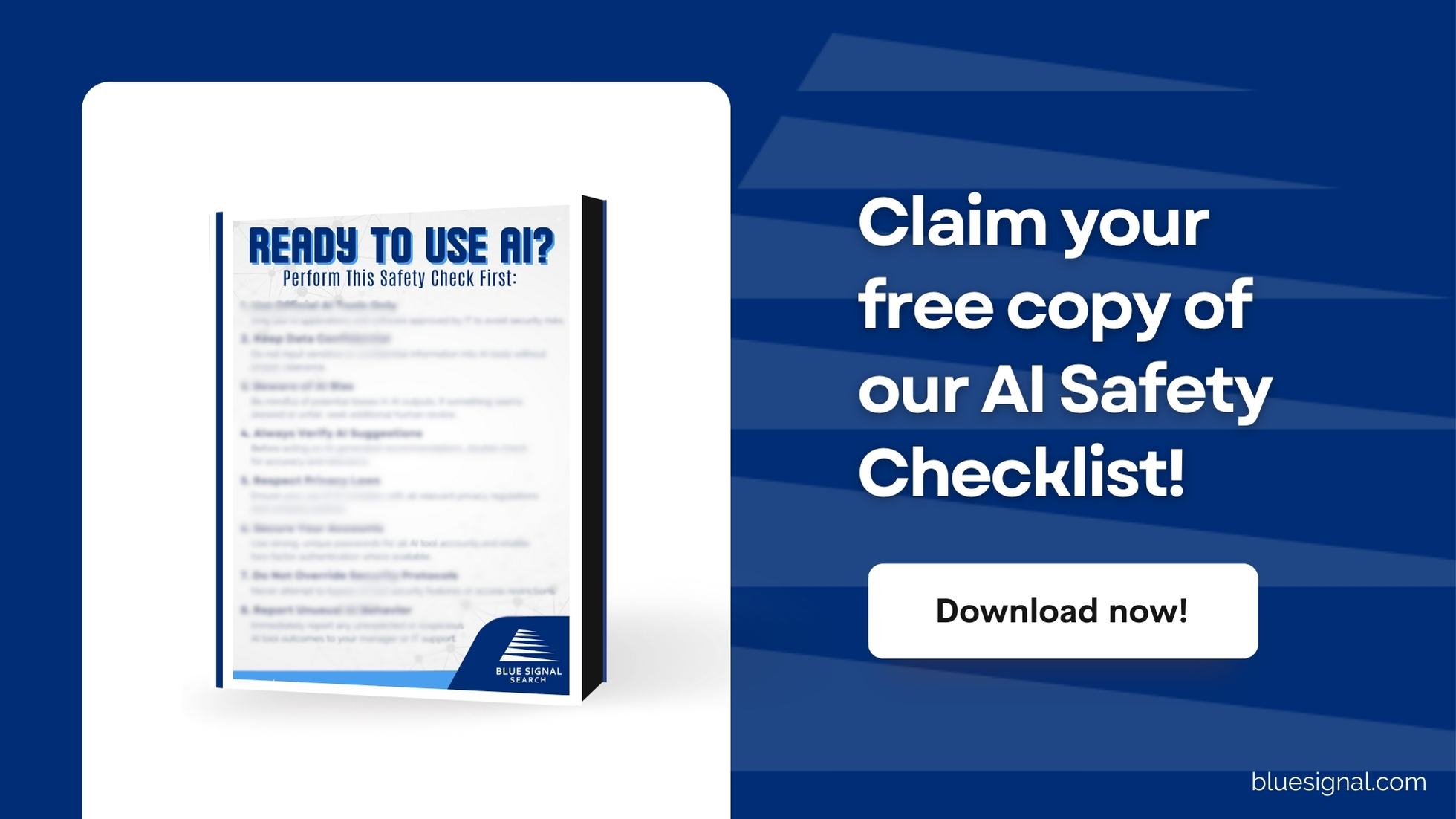Hiring managers have more on their plate than ever, and finding top talent is more competitive than ever. That’s where AI prompts are changing the game. Whether you need to generate job descriptions, screen candidates efficiently, or refine your interview process, AI in recruiting can help streamline your workflow and save valuable time.
But let’s be real—AI can’t replace human intuition. It won’t pick up on a candidate’s subtle cues in an interview, and it definitely won’t understand the inside jokes on your team. What it can do, however, is enhance hiring strategies, reduce administrative burdens, and provide hiring managers with AI-driven insights to make smarter decisions faster.
In this blog, we’ll share 50 AI prompts for hiring managers that will help you attract top talent, improve efficiency, and take your hiring process to the next level—without losing the human touch that makes a great hire truly great.
Why Hiring Managers Should Be Using AI Prompts
Using AI effectively in hiring is about more than just copy-pasting a prompt—you need to refine and customize each one to fit your unique needs. When integrated properly, AI prompts can be a game-changer in recruitment by helping hiring managers:
- Save Time: Automate repetitive tasks like job postings, resume screening, and interview prep.
- Enhance Creativity: Generate fresh ideas for candidate outreach, employer branding, and interview questions.
- Improve Decision-Making: Analyze data, predict hiring trends, and optimize the recruitment process.
- Support Fair Hiring: Standardize hiring practices while ensuring human oversight to prevent unintended bias.
The key is customization—by adapting these prompts to align with your company’s goals, industry, and hiring challenges, you can turn AI into a recruitment advantage. When used effectively, it can streamline workflows, improve hiring outcomes, and help you secure the best talent—while ensuring a hiring process that remains thoughtful, strategic, and truly effective.
50 Best AI Prompts for Hiring Managers
These 50 AI prompts serve as a starting point, giving hiring managers a structured way to leverage AI while keeping human expertise at the center of decision-making. Dive in and discover how AI can enhance your hiring strategy!

AI Prompts for Writing Better Job Descriptions:
- "Write a compelling job description for a that highlights company culture and key responsibilities."
- " Revise this job description to make it more inclusive by removing biased language: [insert text]. "
- "Generate a list of must-have and nice-to-have skills for a [specific role]."
- "Write an engaging job posting that stands out in a competitive hiring market."
- "Optimize this job description for SEO using relevant industry keywords and formatting best practices."
- "Suggest three variations of this job description for different experience levels (junior, mid, senior)."
- "Write an internal job posting to promote a role to current employees before external hiring."
- "Suggest an attention-grabbing opening line for a job description."
- "Create a concise, bullet-pointed job summary for LinkedIn postings."
- " Suggest a short-form job ad for LinkedIn or Indeed to quickly attract applicants."
AI Prompts for Screening Resumes and Candidates:
- "Summarize the strengths and weaknesses of this resume: [insert resume text]."
- "Compare these two candidates based on their experience in [key skills] and rank them by alignment with ."
- "List five red flags to look for in resumes for a [position]."
- “Review this resume and identify gaps in technical skills relevant to ”
- "Generate a shortlist of top candidates based on these resume inputs: [insert resumes]."
- "Analyze and rank [X] resumes based on experience and skill set relevance."
- "Identify transferable skills in this resume for a career pivot into [industry]."
- "Create a resume scoring rubric for this evaluating technical candidates fairly.
- "Suggest how to reformat this resume to improve readability and impact."
- "Highlight the key accomplishments from this resume and suggest improvements."
- "Write a summary based on the key achievements and experience from this resume for easier hiring manager review.”
AI Prompts for Interview Prep and Questions:
- "Generate five behavioral interview questions tailored for a [leadership role]."
- "Create five technical questions for a role to evaluate problem-solving skills.”
- "Suggest follow-up questions for a candidate with experience in [industry]."
- "Generate scenario-based questions for assessing decision-making skills."
- "Develop interview questions that assess a candidate’s adaptability and resilience."
- "Write a structured interview guide for hiring managers assessing candidates for ."
- "Generate competency-based interview questions to assess [specific skill, e.g., leadership, problem-solving, conflict resolution]."
- "Develop a remote interview strategy to assess communication and collaboration skills.”
- "Generate interview questions that assess a candidate's ability to work in a fast-paced environment."
- "Suggest icebreaker interview questions that help candidates feel at ease."
AI Prompts for Candidate Outreach and Follow-Ups:
- "Write a friendly yet professional email inviting a candidate to a second-round interview."
- "Generate a professional but warm rejection email that encourages future applications."
- "Create a LinkedIn message for reaching out to passive candidates in [industry]."
- "Draft a nurturing email sequence to re-engage previous applicants who were a strong fit."
- "Suggest a polite follow-up for a candidate who hasn’t responded to an interview invite."
- "Generate personalized email subject lines that increase candidate open rates."
- "Write a personalized thank-you email for candidates’ post-interview."
- "Create a cold outreach message for engaging highly sought-after talent in [industry]."
- Write a persuasive follow-up email explaining why a candidate should consider the role."
- "Generate a text message follow-up script for checking in with an interested applicant."
AI Prompts for Hiring Strategy and Workforce Planning:
- "Analyze our hiring trends and suggest improvements based on this data: [insert key metrics]."
- "Identify skill gaps in a growing [industry] company and suggest hiring strategies."
- "Generate a hiring forecast for the next 6 months based on current [industry] trends and growth projections."
- "Create a workforce planning strategy for scaling a team in [industry]."
- “Predict future talent shortages in [industry] and suggest mitigation strategies."
- "Develop a budget-friendly hiring strategy for a fast-growing startup."
- "Provide a roadmap for transitioning to skills-based hiring."
- "Suggest ways to improve the candidate experience from application to onboarding."
- "Outline a data-driven approach to hiring decisions based on key performance metrics. "
- "Develop a retention-focused hiring strategy that prioritizes long-term employee success."
When AI Isn’t Enough: The Case for Expert Recruiting Support
AI prompts are an incredible tool for automating tasks, but it won’t replace the human expertise needed for complex hiring decisions. Here are some scenarios where hiring managers still need human recruiters:
- Niche roles or highly competitive industries: AI can’t build exclusive candidate pipelines. AI can surface candidates, but it takes industry insight and deep networks to secure top talent.
- Passive candidate sourcing: AI can suggest outreach strategies, but building trust and meaningful relationships requires a human touch.
- Employer branding & candidate experience: AI can generate messaging, but crafting a compelling, people-first employer brand takes experience.
- Diversity hiring initiatives: AI can help identify patterns, but real change happens through intentional, human-led strategies.
This is where Blue Signal makes the difference. We combine AI-driven efficiency with deep industry expertise, offering a human touch where technology falls short. Whether it’s securing top talent in competitive markets, strengthening your employer brand, or crafting hiring strategies tailored to your business goals, we help ensure your recruitment efforts lead to long-term success. Think of us as an extension of your hiring strategy— ready to step in when AI reaches its limits, bringing the insights, connections, and experience needed to hire with confidence.
Conclusion: Work Smarter, Hire Better—Let’s Talk
AI might help you write a job post, but it won’t pick up on the nuances that turn a good hire into a great one—like whether a candidate’s leadership style truly aligns with your team or if their problem-solving skills go beyond just checking the right boxes. The key to great hiring is blending AI-powered efficiency with human insight and knowing when to lean on the right expertise.
If you’re looking for smarter, more strategic hiring, we’re here to help. Let’s build a process that works—no awkward bot-generated emails required.
Partner with us for your next hire.
Set up a free consultation with a recruiting manager. Tell us about your hiring need.
By submitting this form, you consent to receive communications from Blue Signal, including phone calls, emails, and text messages.



